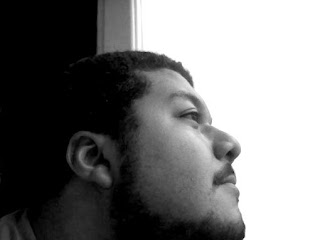Um dos meus escritores favoritos. Cada entrevista com ele é uma revelação.
"I see Superman in this series as an Enlightenment figure, a Renaissance idea of the ideal man, perfect in mind, body and intention.
A key text in all of this is Pico’s ‘Oration On The Dignity of Man’ (15c), generally regarded as the ‘manifesto’ of Renaissance thought, in which Giovanni Pico Della Mirandola laid out the fundamentals of what we tend to refer to as ’Humanist’ thinking.
(The ‘Oratorio’ also turns up in my British superhero series Zenith from 1987, which may indicate how long I’ve been working towards a Pico/Superman team-up!)
At its most basic, the ‘Oratorio’ is telling us that human beings have the unique ability, even the responsibility, to live up to their ‘ideals’. It would be unusual for a dog to aspire to be a horse, a bird to bark like a dog, or a horse to want to wear a diving suit and explore the Barrier Reef, but people have a particular gift for and inclination towards imitation, mimicry and self-transformation. We fly by watching birds and then making metal carriers that can outdo birds, we travel underwater by imitating fish, we constantly look to role models and behavioral templates for guidance, even when those role models are fictional TV or, comic, novel or movie heroes, just like the soft, quick, shapeshifty little things we are. We can alter the clothes we wear, the temperature around us, and change even our own bodies, in order to colonize or occupy previously hostile environments. We are, in short, a distinctively malleable and adaptable bunch.
So, Pico is saying, if we live by imitation, does it not make sense that we might choose to imitate the angels, the gods, the very highest form of being that we can imagine ? Instead of indulging the most brutish, vicious, greedy and ignorant aspects of the human experience, we can, with a little applied effort, elevate the better part of our natures and work to express those elements through our behavior. To do so would probably make us all feel a whole lot better too. Doing good deeds and making other people happy makes you feel totally brilliant, let’s face it.
So we can choose to the astronaut or the gangster. The superhero or the super villain. The angel or the devil. It’s entirely up to us, particularly in the privileged West, how we choose to imagine ourselves and conduct our lives.
We live in the stories we tell ourselves. It’s really simple. We can continue to tell ourselves and our children that the species we belong to is a crawling, diseased, viral cancer smear, only fit for extinction, and let’s see where that leads us.
We can continue to project our self-loathing and narcissistic terror of personal mortality onto our culture, our civilization, our planet, until we wreck the promise of the world for future generations in a fit of sheer self-induced panic...
...or we can own up to the scientific fact that we are all physically connected as parts of a single giant organism, imagine better ways to live and grow...and then put them into practice. We can stop pissing about, start building starships, and get on with the business of being adults.
The ’Oratorio’ is nothing less than the Shazam!, the Kimota! for Western Culture and we would do well to remember it in our currently trying times.
The key theme of the ‘Dark Age’ of comics was loss and recovery of wonder - McGregor’s Killraven trawling through the apocalyptic wreckage of culture in his search for poetry, meaning and fellowship, Captain Mantra, amnesiac in Robert Mayer’s Superfolks, Alan Moore’s Mike Maxwell trudging through the black and white streets of Thatcher’s Britain, with the magic word of transformation burning on the tip of his tongue.
My own work has been an ongoing attempt to repeat the magic word over and over until we all become the kind of superheroes we’d all like to be."
http://www.newsarama.com/comics/100828-Morrison-Superman6.html
terça-feira, 28 de outubro de 2008
Assinar:
Postar comentários (Atom)

Nenhum comentário:
Postar um comentário